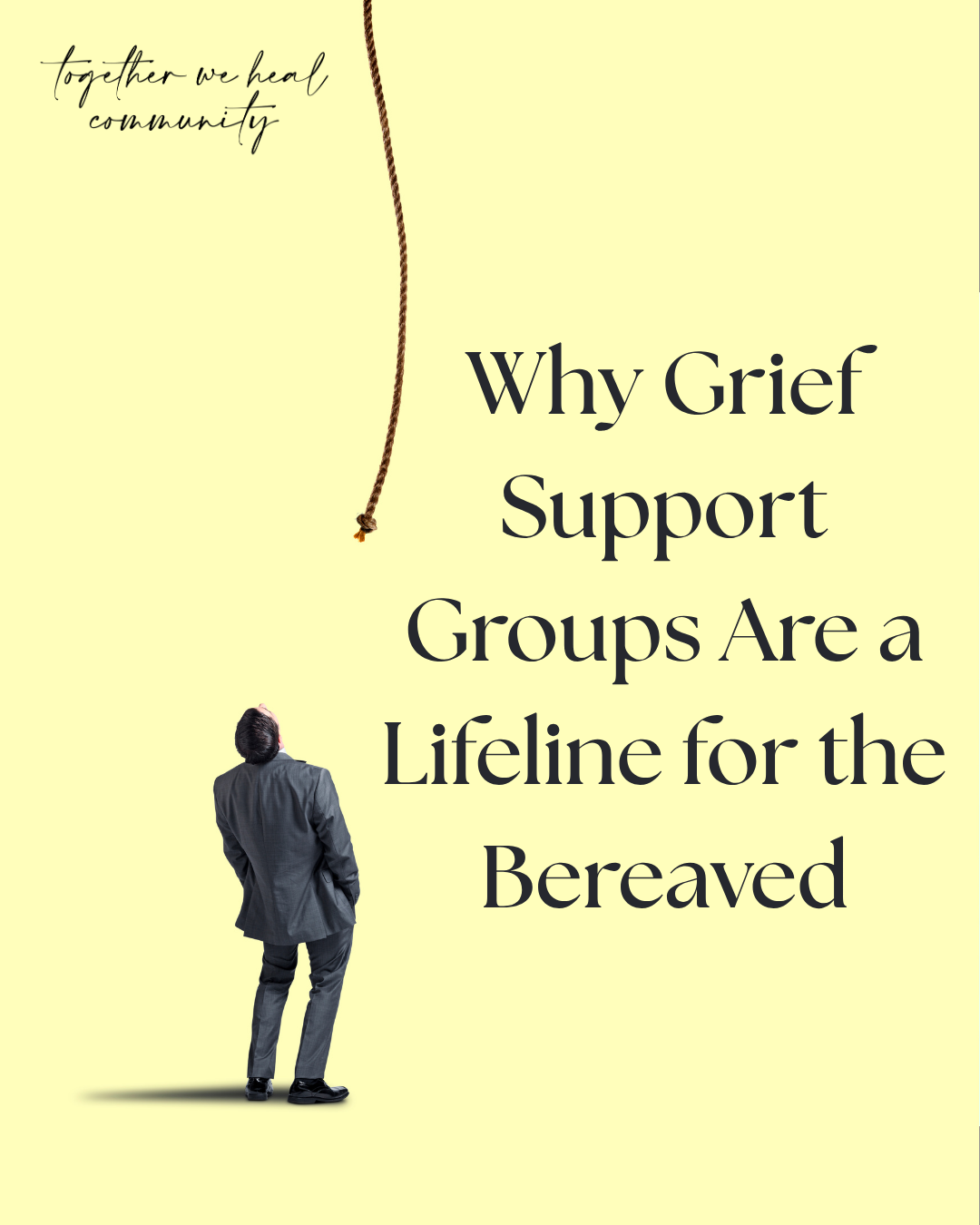The beginning of each new year often arrives with an unspoken expectation: fresh starts, clean slates, renewed energy. To a griever, this idea seems like a dagger to the heart; a reminder that your world will never be the same. The start of a new year without your person seems cruel and wrong. The loss does not disappear at 12:01 January, 1st.
Supporting Your Nervous System This Season ~ Simple Ways to Bring Calm & Balance To Your Body
As we head into the holiday season, it important to notice our body’s physical and mental stress, fatigue and overwhelm. Often as we approach big holidays, our body lets us know what’s coming…but we can also find opportunities to nurture ourselves with the slowing/changing patterns around us…in our weather and light.
At its core, the nervous system is your body’s communication network. It constantly sends and receives signals to keep everything in your body from running smoothly. The central nervous system (the brain and spinal cord) acts as the control center, processing information and making decisions.
The nervous system is designed to enable you to shift smoothly between states of alertness and relaxation. But modern life often overwhelms this system. Chronic stress, grief, past trauma, and even ongoing health challenges can trap the body in survival mode. Instead of moving fluidly between “fight or flight” and “rest and digest,” the system can get stuck, leaving you wired, exhausted, or both. Being stuck in a sympathetic state can have real physiological effects (physical symptoms), such as high blood pressure, metabolic issues, or stress and dysfunction of other organs like kidneys.
When this happens, symptoms show up not only in your mind but across the whole body: sleep issues like insomnia, gut problems like IBS, brain fog, anxiety, and a heightened sensitivity to stress. Over time, constant activation wears down the body’s resilience, making recovery harder and overall health decline.
When the nervous system gets stuck in patterns of stress, it can feel like you’re in an endless cycle of overwhelm. You can train your brain to break this cycle.
Try these methods on your own. I’ve added some explanations for some of those that you might be unfamiliar with.
~drink something warm
~watch a funny movie
~get adequate sleep
~stop the scroll
~try a new craft
~keep a gratitude journal (Try noticing 3 things every day)
~prioritize nourishing foods (It’s soup season!)
~cuddle with a pet…or someone else’s
~go for a walk
~watch the sunset/sunrise
~gardening
~read a good book
~have coffee/tea with friends
~get morning sunlight (30 mins, especially in the morning)
~daily meditation/prayer (try this from my friend Jill Weston)
~plan a fall outing (think apple picking or leaf collecting)
~experiment with a grounding practice (take your shoes off and stand in the grass)
~turn off the news
~use amber lights at night
~hug someone
~chew gum
~yoga/stretching
~get a massage (Check out our resources page)
~sing/listen to music you love
~dance to your favorite songs
~lay down and put your feet up against a wall
~breathwork
A simple pattern to try is inhale for 4 counts, exhale for 6 counts. Here’s how:
Find a comfortable position and relax your body.
Inhale through your nose for 4 counts.
Exhale slowly through your mouth for 6 counts.
Repeat this cycle for 2–3 minutes.~vagus nerve exercises
Vagus nerve exercises helps shift you into the parasympathetic “rest and digest” state, and when practiced regularly, it can lower your baseline tension, making it easier to feel calm and recover from stress.
~humming
The vibration created when you hum helps stimulate the vagus nerve and promote relaxation. You can do this anywhere—quietly on a walk, while traveling, or at home.
~grounding:
Grounding is a quick and effective way to calm your nervous system by reconnecting with your body and the support beneath you. This simple practice can be as short or long as you’d like, whether you’re standing with your feet rooted into the floor, sitting back in a chair, or lying down on a yoga mat or bed.
The exercise begins with a few deep breaths and a sigh, then guides you to focus on the part of your body that is in contact with the surface beneath you. It might be your feet, your back, or your whole body if you’re lying down.
~tapping technique (lymphatic stimulation):
Lightly tap along the back and inside of each arm, move up toward the neck, then tap the center of the chest and under the arms near the rib cage. You might even notice a yawn, which is a natural sign that your nervous system is shifting toward relaxation!
~progressive muscle relaxation:
Tense a muscle group (for example, your shoulders or thighs) for 2–3 seconds.
Exhale with a sigh and release all tension from your muscles.
Move through areas of the body (shoulders, arms, stomach, legs), first creating tension and before releasing.
Each time, take a moment to notice the feeling of deeper relaxation, like stepping down a staircase.
In addition to these at-home practices, I highly recommend working with Karen Penfold of Full of Hope Yoga if you’re in the Sacramento area to help you in your nervous system regulation journey. She has worked with Together We Heal Community for many years and specializes in regulation the nervous system. She has a course on this exact topic HERE.
Sources:
Decluttering a Loved One’s Belongings After Their Passing
Losing a loved one is an emotional journey filled with grief, and one of the most challenging aspects is the process of letting go of their belongings. Each item holds memories and emotions, making the task a poignant and often bittersweet experience.
Regina Arnold states, “When you’re surrounded by your loved one's belongings, it can be easy to focus on the pain of their loss. However, if you choose to keep only the items that bring you joy, you can remember your loved one in positive and pleasant ways.
In this blog, we explore the steps involved in navigating this delicate process. We will be hosting “Decluttering Through Grief” with Arcelia Cervantes on March 16th to further dive into this subject and give you more help letting go of items.
Here are some tips to explore until then.
Give Yourself Time:
Grieving is a personal journey, and there is no universal timeline for healing. Allow yourself the time needed to process the loss before diving into the task of sorting through belongings. Rushing this process may intensify emotions and make it harder to let go.
Start Small:
Begin with less emotionally charged items. Sorting through less sentimental belongings first can help you ease into the process and gradually build the emotional strength needed for more challenging decisions.
Create a Support System:
Enlist the help of friends or family members who can provide emotional support and assistance. Having someone to share memories with and offer guidance can make the process less isolating.
Preserve Memories:
Find a way to keep the memories with a smaller footprint on your space. Consider creating a memory box or scrapbook with some of your loved one's belongings. Select items that hold special significance and can be cherished as keepsakes. This allows you to preserve memories while making space for the future.
Donate and Repurpose:
Find purpose in letting go by donating items to charitable organizations or repurposing them. Knowing that your loved one's belongings are contributing to a positive cause can bring a sense of fulfillment and honor their memory.
Seek Professional Help:
If the process becomes overwhelming, consider seeking guidance from a grief counselor or therapist. They can provide coping strategies and emotional support to help you navigate the complexities of letting go. We are excited to partner with Arcelia Cervantes in March to discuss strategies in decluttering.
Create New Rituals:
Establishing new rituals or traditions can help you transition into a life without your loved one. Whether it's creating a memorial space or starting a new family tradition, finding ways to honor their memory in a positive light can aid the healing process.
Know When to Let Go:
Understand that some items may hold too much emotional weight, and it's okay not to part with everything. Focus on what feels right for you, acknowledging that letting go is a gradual process, and it's okay to keep certain items close.
Celebrate Their Life:
Instead of solely mourning the loss, celebrate the life your loved one lived. Reflect on the positive impact they had on your life and the lives of others. Keeping their spirit alive in your heart and through their legacy can bring comfort during this challenging time.
Letting go of a loved one's belongings is a unique and deeply personal journey. By approaching the process with compassion for yourself and your emotions, you can navigate this bittersweet experience and find a path toward healing.
Why Grief Support Groups Are a Lifeline For the Bereaved
The one common denominator that connect all humans around the world is the loss of someone we love. Death is a natural part of life. The loss of a loved one is probably the hardest experience one can go through. Grievers feel isolation and abandonment from family and friends. They lose their appetite, their connections, their sense of joy and the meaning of the life they once knew.
That’s where grief support groups come in. These groups offer more than just a space to talk—they provide community, understanding, and healing in ways that are both meaningful and lasting.
Honoring Bereaved Mothers on Mother's Day~ How we can offer love and support.
Mother’s Day is traditionally a celebration, filled with flowers, cards, and shared moments. But for bereaved mothers—those who have lost a child—this day can be a harsh reminder of what’s missing. While the world celebrates motherhood, these women carry a grief that’s often silent and unseen.
If you have a bereaved mother in your life, here are thoughtful ways to acknowledge their pain and offer genuine support. While this blog highlights the loss of a child, I will note that this also applies to anyone who has lost a mother…Mother’s Day isn’t the same without mom.
Acknowledge Their Loss
The most meaningful gift you can offer is acknowledgment. Don’t be afraid to speak their child’s name. Say, “I’m thinking of you and [child’s name] today.” This small gesture honors both the mother and the child who is no longer here.
Send a Thoughtful Message or Card
A text, call, or handwritten note can go a long way. Let her know that you’re holding her in your heart. Avoid clichés like “everything happens for a reason.” Instead, try:
“I know this day may be difficult. I’m here for you, and I’m thinking of your beautiful child.”
Offer Presence, Not Platitudes
Grief is not something to fix—it’s something to witness. When we try to help by offering our own understanding of grief, sometimes we miss the mark. (Ex: “Everything happens for a reason.”) Comforting someone in grief is tricky. If she wants to talk, listen. If she wants silence, offer it. Just being present without trying to make it better can be the most comforting thing of all. Don’t wait for her to ask, instead offer up some ideas so she doesn’t have to think.
“What kind of ice cream do you want? I’ll be there in an hour.”
“I’m picking you up, get your shoes on. We’re going (walking).”
Honor Her Child in a Personal Way
Light a candle, plant a flower, make a donation in the child’s name, or share a memory you have. Invite her to join, if she’s comfortable. It’s a way to show that her child’s life—and her motherhood—still matters deeply.
Respect Her Grief Journey
Grief is as individual as a fingerprint. She may want to spend the day alone, or she might find comfort in company. Let her lead, and support her choices without judgment or expectations.
Extend Compassion Beyond the Day
While Mother’s Day can be especially difficult, grief doesn’t begin and end with a calendar date. Continue to check in throughout the year, especially on birthdays, anniversaries, and other meaningful milestones. The loss doesn’t always need to be discussed, but staying present is significant for the griever. They don’t want to be forgotten…this makes them feel even more isolated.
For bereaved mothers, the month of Mother’s Day is a complex blend of love and sorrow. But with empathy, respect, and remembrance, we can help make space for their grief and honor their enduring role as mothers. Their motherhood doesn’t end with loss—it transforms, and it deserves to be seen.
Bereaved Mother's Day is celebrated annually on the first Sunday of May, (next Sunday) serving as a day of remembrance and support for mothers who have lost a child. It's a time to acknowledge the unique grief experienced by these mothers, regardless of the circumstances surrounding the loss. This day is separate from the traditional Mother's Day celebration, which focuses on mothers with living children.
We reserve this day to honor and support mothers who have lost a child, offering a space for remembrance and acknowledging their enduring grief.
To every mother holding love and loss in the same breath today: we see you. We honor you. We remember with you.
7 Habits to Start After Loss
Experiencing loss—whether it’s the passing of a loved one, the end of a relationship, or a major life change—can feel overwhelming and disorienting. In the midst of grief, it’s easy to feel stuck, unsure of how to move forward.
Healing takes time. Grief cannot be fixed or hurried, but nourished and supported. Establishing small, intentional habits can help rebuild a sense of stability and hope after loss.
Together, we’ll explore seven simple but powerful habits to incorporate into your daily life after loss—practices that foster healing, resilience, and a renewed sense of purpose.




